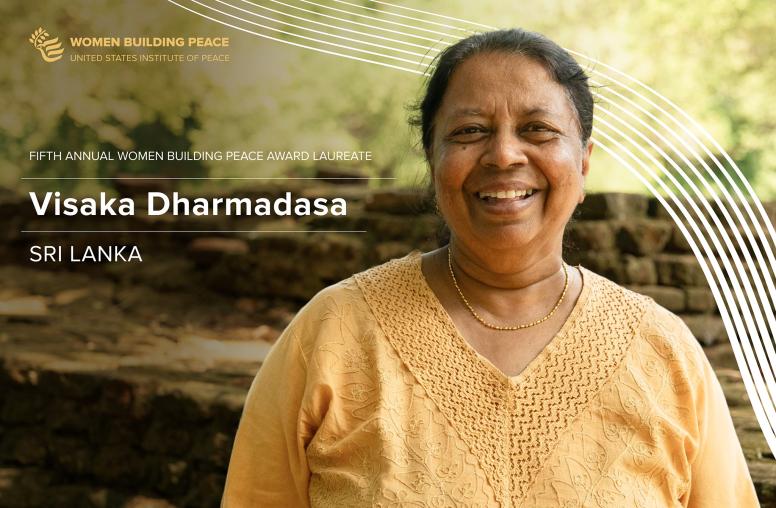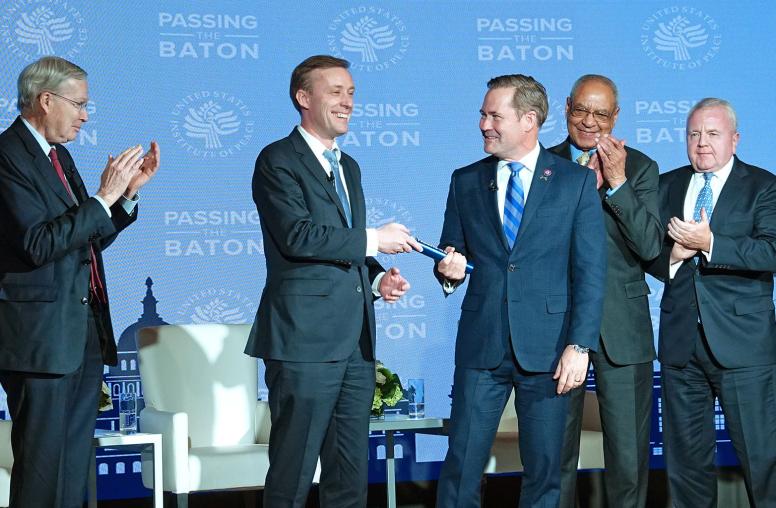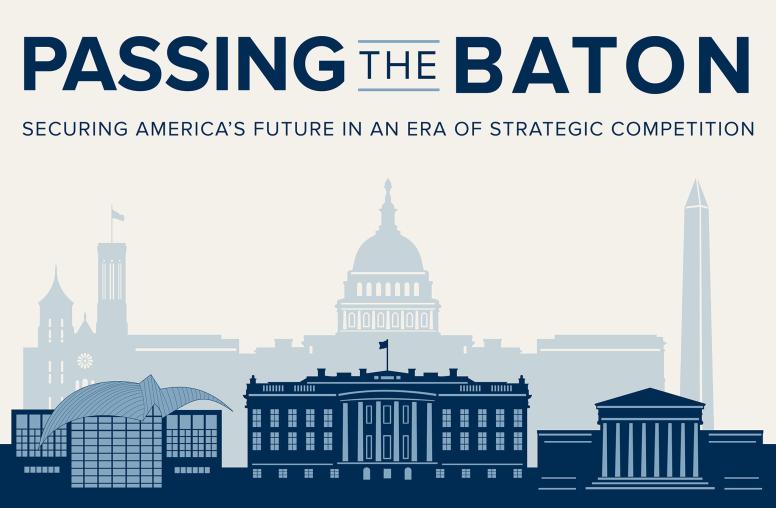USIP Offers Experts, Resources on U.S.-Russia Nuclear Deal
As the U.S. and Russia announce that an agreement has been reached on a new START treaty today, the wider issues of nuclear weapons and security come to the forefront of international discussion. USIP has a range of experts, activities and programs on negotiations, arms control and Russia.
For Immediate Release, March 26, 2010
Contact: Allison Sturma, 202/429-4725 or asturma@usip.org
(Washington) - As the U.S. and Russia announce that an agreement has been reached on a new START treaty today, the wider issues of nuclear weapons and security come to the forefront of international discussion.
USIP has a range of experts, activities and programs on negotiations, arms control and Russia.
Experts
- Paul Hughes (nuclear security, international non-proliferation, Russia)
Senior Program Officer and Executive Director, Congressional Commission on the Strategic Posture of the United States, a bipartisan body headed by former Defense Secretaries William Perry and James Schlesinger
Director of national security policy on the Army staff (2000-2002); former deputy director of the Office for Humanitarian Assistance and Anti-Personnel Landmine Policy in the Office of the Secretary of Defense (1996 to 2000)
Phone: (202) 429-7167
Cell: (301) 461-8910
E-mail: phughes@usip.org - Bruce MacDonald (nuclear security, international non-proliferation)
Senior Director, Congressional Commission on the Strategic Posture of the United States
Project leader for the Council on Foreign Relations’ study of China, Space Weapons, and U.S. Security; former assistant director for national security at the White House Office of Science and Technology Policy; former member of the U.S. START delegation in Geneva
Office Phone: (202) 429-3832
Cell Phone: (703) 346-3347
E-mail: bmacdonald@usip.org - Ambassador Jayantha Dhanapala (nuclear security, international non-proliferation)
Jennings Randolph Senior Visiting Scholar
President of the 1995 Nuclear Non-Proliferation Treaty Review and Extension Conference; undersecretary-general for Disarmament Affairs (1998-2003); and director of United Nations Institute for Disarmament Research (UNIDIR) (1987-1992)
Phone: 202-429-7164
E-mail: jdhanapala@usip.org - Tara Sonenshine (Russia)
Executive Vice President
Former transition director for the National Security Council (NSC); special assistant to President Clinton and deputy director of communications for the NSC (1994-1995)
Phone: (202) 429-3826
Email: tsonenshine@usip.org - Ambassador William Taylor (Russia)
Vice President, Center for Post-Conflict Peace and Stability Operations
U.S. ambassador to Ukraine (2006-2009); U.S. representative to the Mideast Quartet; director of the Iraq Reconstruction Management Office (2004-2005); coordinator of international and U.S. assistance to Afghanistan (2002-2003); coordinator of U.S. assistance to the former Soviet Union and Eastern Europe
Phone: (202) 429-3871
E-mail: wtaylor@usip.org - Abiodun Williams (international non-proliferation)
Vice President, Center for Conflict Analysis and Prevention
Former associate dean of the Africa Center for Strategic Studies at the National Defense University; director of strategic planning in the Office of the United Nations Secretary-General (2001-2007)
Phone: (202) 429-4772
E-mail: awilliams@usip.org - Chantal de Jonge Oudraat (international non-proliferation)
Associate Vice President, Jennings Randolph Fellowship Program
Adjunct associate professor at the Edmund A. Walsh School of Foreign Service, Georgetown University; former senior fellow at the Center for Transatlantic Relations, Paul H. Nitze School of Advanced International Studies, Johns Hopkins University
Phone: (202) 429-4715
E-mail: coudraat@usip.org
Selected Publications
- Final Report of the Congressional Commission on the Strategic Posture of the United States
- "In the Eyes of the Experts: Analysis and Comments on America's Strategic Posture"
Projects and Collaborations
- USIP and the Nixon Center are collaborating on a U.S.-Russia Dialogue Project which examines interests at stake on non-proliferation and arms control issues.
- USIP and the Center for American Progress are examining Russia’s relations with its neighbors to identify possible conflicts that could be avoided if addressed in advance.
- USIP and the Stimson Center are co-sponsoring a study group which focuses on alternative strategies for shaping Iran’s nuclear future.
- USIP and the Stimson Center also formed a Space Security Working Group to consider ways to pursue the objectives outlined in the Space Posture Review.
- USIP and the Center for the Study of Weapons of Mass Destruction from the National Defense University created a Non-Proliferation Working Group to examine nonproliferation issues related to a variety of second-tier aspiring nuclear powers, such as Syria, Burma and Venezuela.
- USIP and the University of Ottawa will conduct a series of Track 2 meetings regarding India and Pakistan nuclear security and possible arms control measures for the South Asia region.
- USIP and the National Academy of Sciences will produce a report on topics related to improving cooperation between policymakers and scientists.
- USIP and George Washington University co-sponsored a two-day conference on Nuclear Weapons Free Zones



